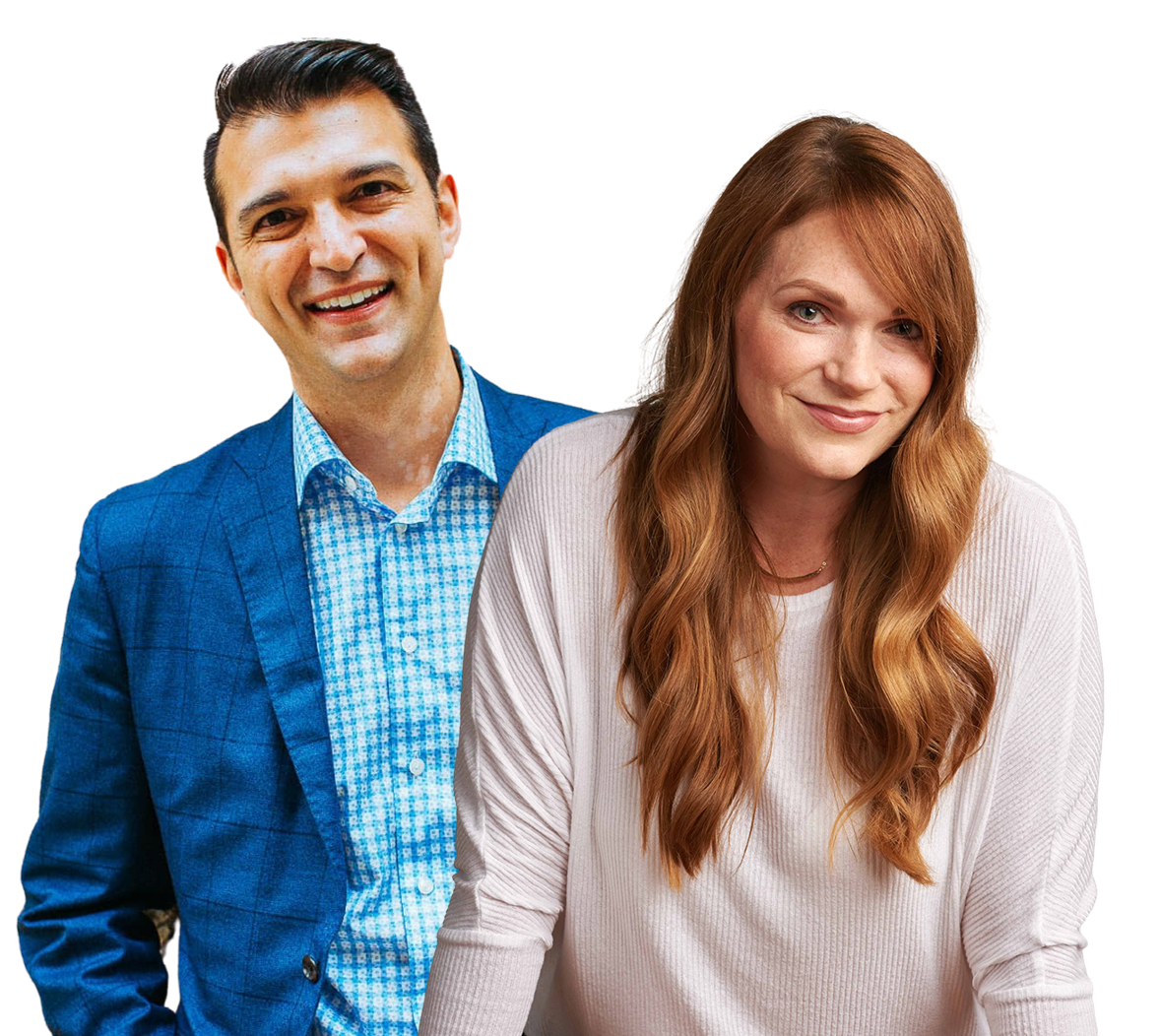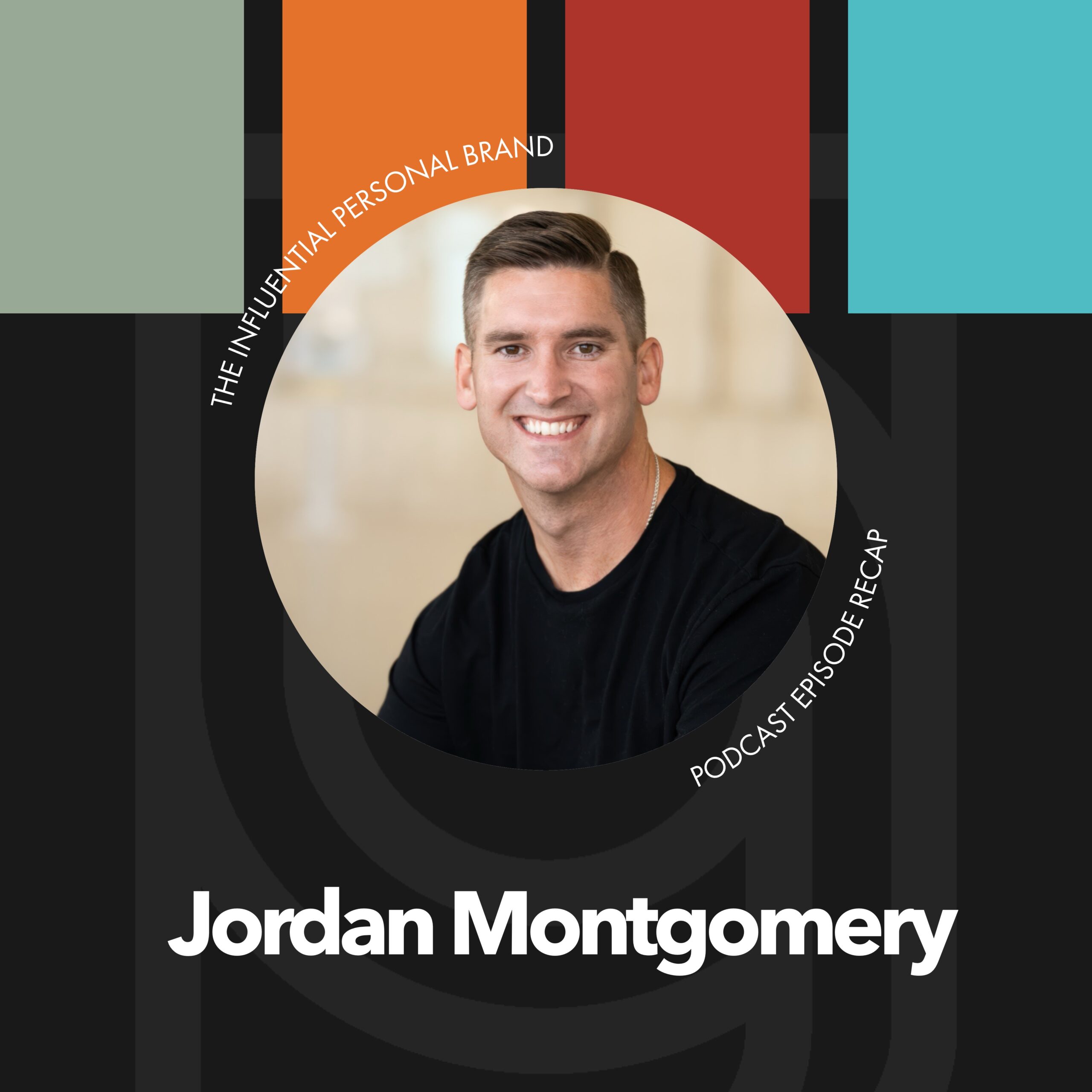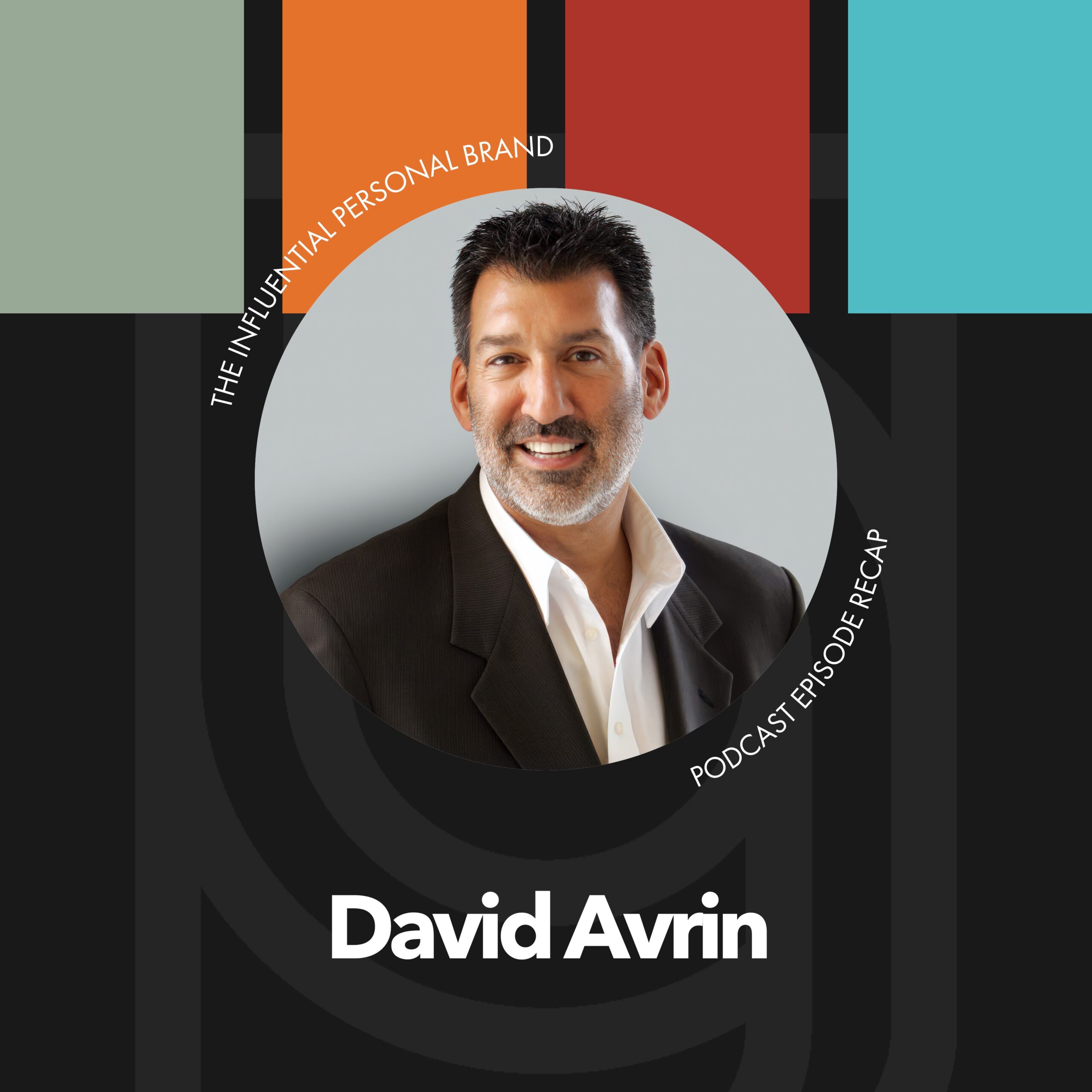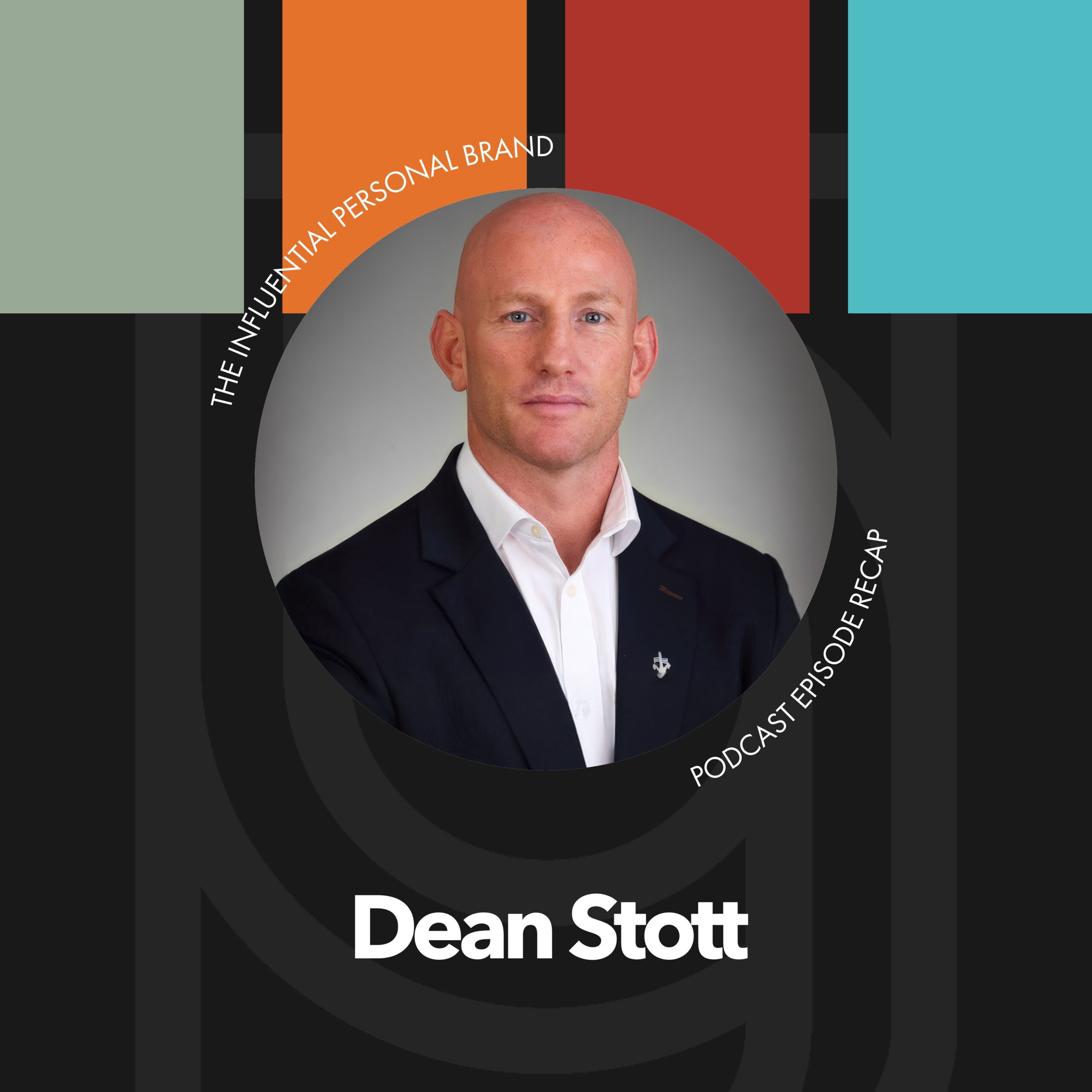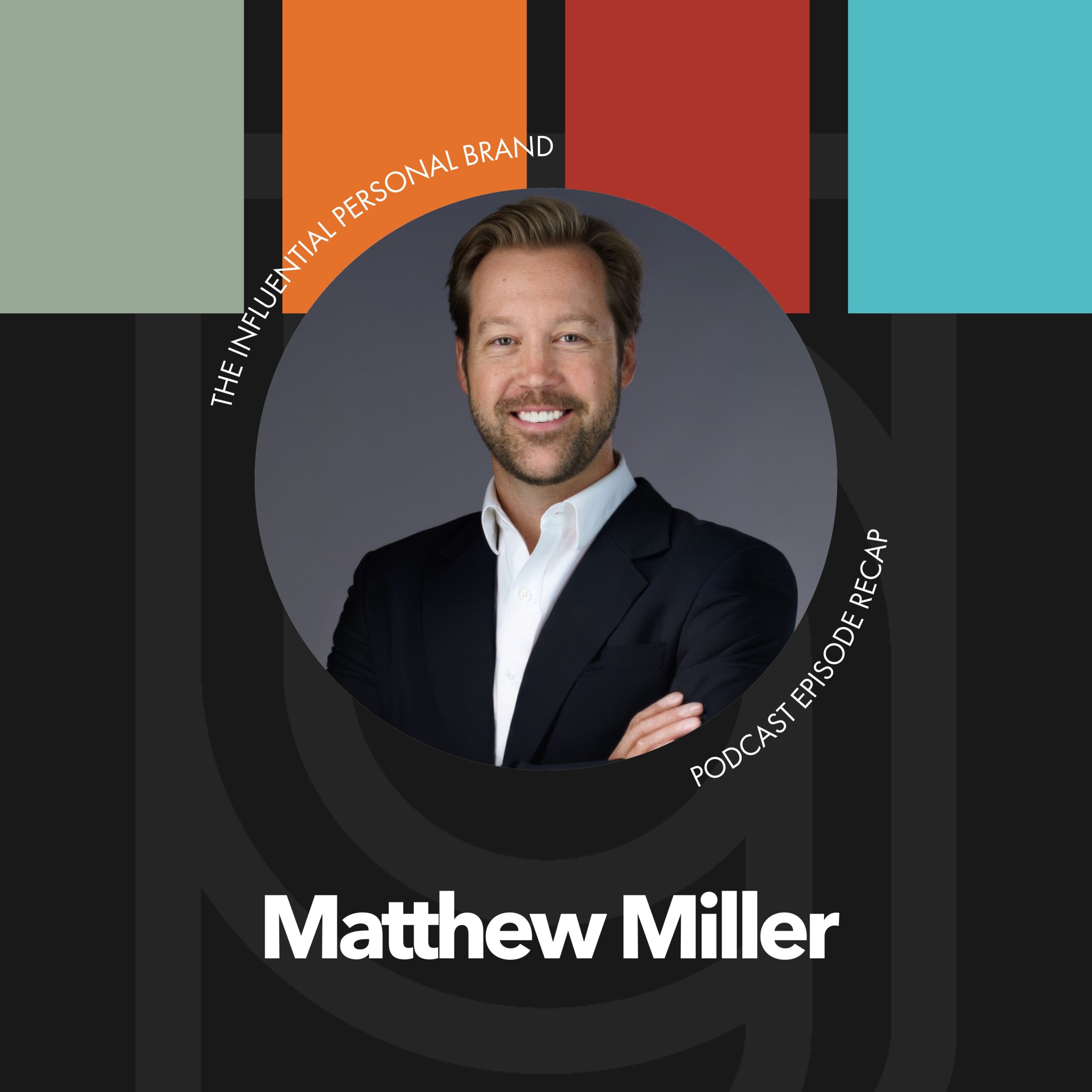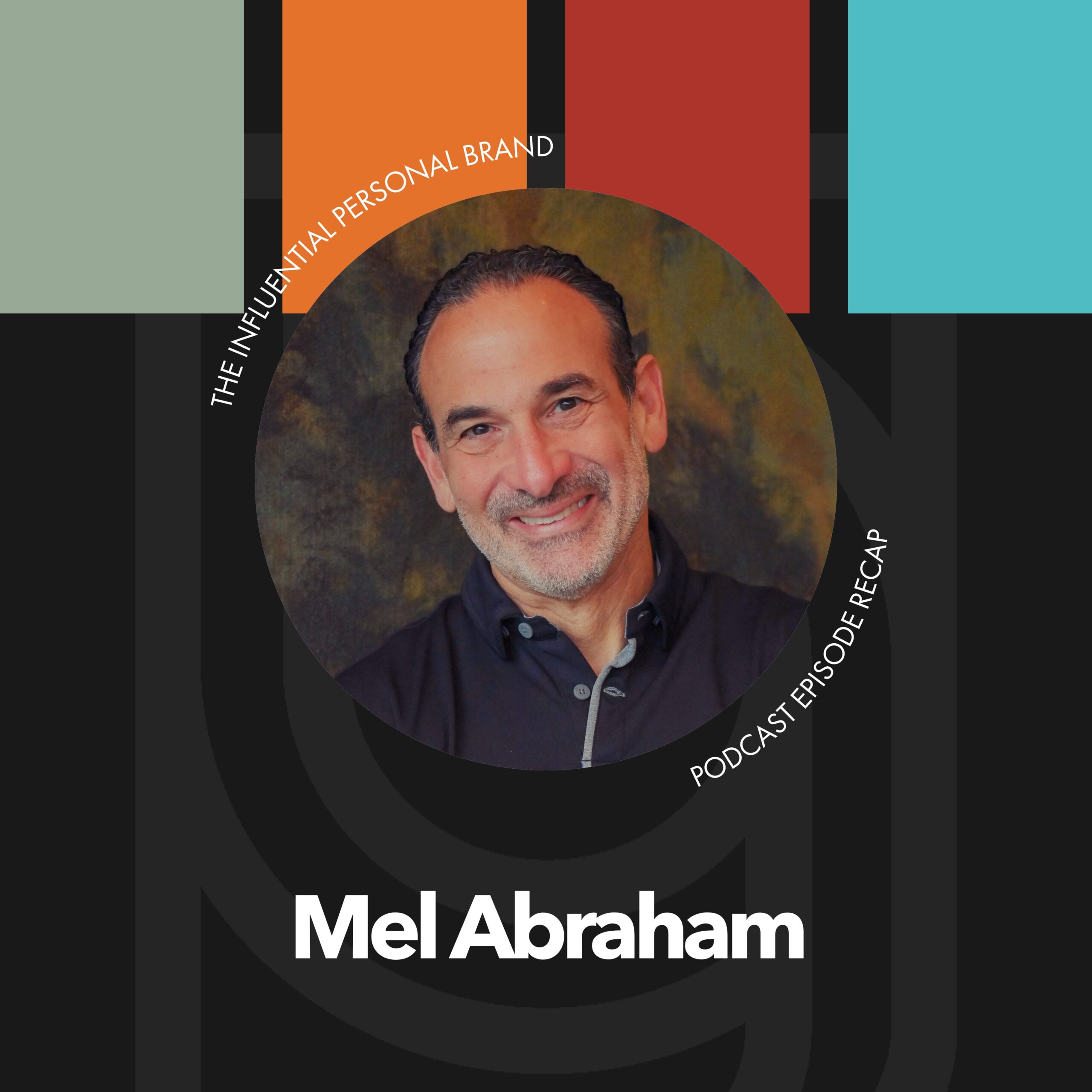RV: (00:06)
Hey, welcome to this special recap edition of the influential personal brand podcast. Holy moly. What a powerful and technical interview with Elizabeth Rider. And there’s, there’s so many things that I loved about that interview. One of them is that perhaps you’ve never heard of Elizabeth Rider because you know, she doesn’t have a huge social media following but she dominates her niche and she has more web traffic by far. Then probably most of the major social influencers who are out there. And that is why this is such an important interview because this is something that we align with on, you know, for Elizabeth and Andy. I think my, my first big takeaway or just thing that I want to punctuate for you to make sure that you didn’t miss this [inaudible] where she said your blog is the home of your business. And that is what we are constantly preaching and brand builders group that the, your blog is the, the headquarters.
RV: (01:21)
It’s the central like home location of your personal brand, your relationship engine, which is what what we call the entire ecosystem. You know, for us, we use the term relationship engine, which refers to an automated ecosystem that is digital that works 24 hours a day, seven days a week, introducing your content, two new people, and constantly bringing people in to your business and into your funnels and generating revenue for you. But the blog is, it’s the anchor, it’s the, it’s the cornerstone of that whole thing and people just don’t talk about that. And that’s because of, I think exactly what Elizabeth said. Mmm. Which is that we’re, we’re so concerned with the vanity of, of, of metrics of how many followers that we have, like in recent years, it’s just been about like the perception versus the substance and the reality of how many people are coming to a website that, that we own.
RV: (02:30)
And I love that exaRVmple that she was sharing about a blog post that she wrote eight years ago is bringing in 100,000 visitors a month to her site. That’s crazy. Meanwhile, the same amount of time as writing one blog post that you put into writing a social media post, that social media post is going to disappear in 24 hours. Like if you’re lucky it’ll last 24 hours. It’s just to get pushed down the feed. No one’s going to go back and look at that, but it’s like what you post on social media over time, the value of it diminishes. But what you post on on the web, like as a on your website or specifically as a blog article, over time it gains traffic. It’s like a, it’s like a growing snowball. It’s, it’s almost like the time on social media is like spending money.
RV: (03:26)
The time on your blog is like investing money. The time on your social media is spending money because it disappears and it never really comes back. The time spent on a blog is investing money because it starts even, it starts small, but it grows and grows and grows and grows over time and one post years later can be bringing you more traffic than it ever did when you first posted. And that’s just something that you don’t hear about. And so I hope that you caught that and it made sense to you in if you’ve been fighting those of you that are members, if for some reason you’ve been resistant to this strategy we’re talking about with making the blog that everything revolves around the blog. Hopefully you’re onboard now. Mmm. Yeah. And hearing about how much money it can make and generate for you. Now, one thing that we were not in alignment on with Elizabeth, just to kind of comment on this, you know, she talked about not using the sidebar.
RV: (04:25)
Okay. W we just [inaudible] flat out would disagree with that. We are all about the sidebar. Mmm. Yes. A course on mobile. The sidebar doesn’t display. So it’s a, it’s a both. And for us, we want to see the sidebar on the desktop view because there’s still a large amount, almost 50% of traffic is still coming, you know, depending on what you’re looking at, you know, 40 to 50% of traffic is still coming from desktop. So it’s not like you want to not do that. But I also very much adamantly agree with her that when you’re on mobile, you need to have a different type of lead capture, a mechanism that scrolls with people because they’re not going to see the sidebar like they will as they are reading on desktop. So the other thing was there was, you know, she was talking about RSS feed and that she doesn’t use an automated RSS, which [inaudible] stands for real simple syndication and RSS is a little technical term, which means that when someone subscribes it, the, the system automatically emails them every time you post a new blog.
RV: (05:33)
Well Mmm, I would, I would agree with her to the standpoint where I can say, yeah, Hey, if you can do a manual broadcast every time you post a new blog, do that. Like that’s better cause it’s going to be fresh and customized and all that. Yeah. Most of you, you know, most of us are just struggling to barely keep up with all the moving parts of a digital marketing machine on a weekly basis anyway. So that’s why we, we are very big fans of the RSS, you know, automated email system because we’re trying to automate as much of this as we can so that, you know, you can be out doing all the things that you need to be doing, but you know, so anyways, that’s not really a disagreement. That’s more of like an in addition to if you can do custom broadcast, fine.
RV: (06:18)
Yeah, if you’re not able, if you don’t have the [inaudible] time to do that or you don’t have the staff, then just do an automated RSSV to start and you can always grow later. But I mean, the blog, the blog, the blog, just really, really huge. And some of the things that she was talking about related to SEO of naming your blog post, don’t, don’t, don’t name it something like clever, right? We talk about this a lot. Clear is greater than clever. Clear is greater than clever. Name it something that somebody would type into a search engine. That’s what you want to name it. Mmm. And when you get to phase three, our phase three event high traffic strategies, one of, one of the six sections in that phase three event is understanding like the Google algorithm and search algorithms and how those all things work.
RV: (07:07)
And those are called your H one tags, which is your, your title tags for an article. So those are really, really important that what you actually name your blog posts is really, really important. The second thing, which is related to what we were just talking about that she just really nailed I think is how some of this is as a business strategy issue. But a lot of it is a heart issue. Like a lot of this is an ego issue is, is that there’s an ego in social media of like, as I spend my time there and I have more followers, like that makes me maybe look better on the surface to some people. But unfortunately that’s why there’s so many people that are Twitter rich and dollar broke. And, and I say that like meaningfully and honestly and, and in a heartbroken way that there’s a lot of people who have a lot of social media followers and they really, really struggled to convert that to real dollars or significant or scalable dollars because they don’t control that relationship that the third party platform controls that relationship.
RV: (08:17)
And it doesn’t mean that third party platforms are bad. They’re, they’re good, they’re providing a service for free and we want to provide value back to them by producing content. But it just means you don’t, you don’t want to build your house on rented real estate. You know, people talk about all that time. You know, I think Michael Hyatt was the first person that I heard say that. And it’s just, yeah, that’s a great, yeah, a great analogy. But I also want [inaudible] I want to highlight for you something that I am now referring to as the 1% rule, the 1% role. So here’s what the 1% rule is, and this is this an ego, it’s just, it’s an ego thing. It helps you give get perspective, right? When you look at somebody’s social media profiles and you see how many people are following them, it’s easy to be intimidated, right?
RV: (09:03)
It’s to go, well man, they have a million followers. Holy moly. But in reality, just do 1% of that number because that is realistically, you know, a much more consistent look at how in gay, what is the engaged number? So 10% would be a hundred thousand 1% 10,000 yeah, right? Now let’s steal. Great. Like I want to have a million followers. There’s no reason I wouldn’t want to have a million followers. But again, it’s like if I could choose between having a million followers on social and 100,000 and email, I would take the 100,000 on email every single day of the week without a shadow of a doubt because those 100,000 I can reach whenever I want, as much as I want, as long as I want. I’m in control of that relationship. The million could disappear tomorrow, right? Like literally the algorithm changes, it disappears tomorrow. So just keep that in mind. It’s kind of like don’t compare your step number two to someone else to step number 27 and you know, just keep in mind that what appears on the surface, the people hit it hit hardest by the algorithms are the people with the biggest followings like yeah, for people starting out, we got crap, you know, I got a few thousand followers and now it’s like I’m lucky if a couple of hundred people see the post.
RV: (10:28)
But imagine how painful it is. If you have a million and you’ve got hundreds of thousands of people and you’ve done all this work to build this audience and then only only a few thousand of them see it, that’s painful. Painful man. We don’t want to see that happen to you. Like we want our community to be sure or build on social media. It doesn’t have to be one or the other, but it’s like make sure if it is one or the other that you’re, you’re bringing people over to the area that you control. And that should be your blog and your website in your properties in the, in the longterm. So that’s the 1% role. That’s the heart issue. And then the third thing that [inaudible] Elizabeth shared that I, well, it’s just so I think relevant and always good to hear and is scarcity versus abundance. Scarcity versus abundance.
RV: (11:20)
Yeah. More and more as time goes on, the people who I meet who are not only the wealthiest but the happiest, they are sharing what they know, they’re, they’re giving it away. They’re teaching people, they’re impacting lives. You know, [inaudible] [inaudible] discouraging to me how many times, cause this is what, you know, this is our business now. Brand builders group is what we’re doing all day. Every day is helping leaders and messengers grow their influence. And people say, I want to make an impact on the world. But then it’s like all they ever think about is like how much money they’re making. And that’s important too. We gotta be able to pay the bills and we want people to grow and make money. But it’s like they don’t, they’re afraid to teach people anything because they want to charge for everything. And, and so they never build a following because to get the real value you have to pay for it and nobody’s sure if it’s worth the value because they haven’t gotten any value yet.
RV: (12:17)
The abundance mentality is give it away first. Give it away first. Teach everything you know for free. Just teach it one bite at a time in all random order. Remember this quote, right? We say this all the time. People don’t pay for information. People pay for organization and application. People don’t pay for information. They pay for organization and application. You don’t have to be worried about giving away too much content for free. You don’t have to be worried about putting your best ideas out there. It’s not that you’re going to put all your best ideas out there and people aren’t going to buy from you. It’s that as you put their best ideas out there, you increase the chances that people are going to buy from you because they want to know what else and they want to see the full system and they want to see things in order.
RV: (13:06)
And most of all, they want help applying the ideas. Right? You can’t give away application because, I mean I guess you could, I guess you could give away. You’re doing work for people, but that’s, that’s not really what we’re talking about. We’re talking about giving away the ideas and that people are going to pay you for the assistance to help them get it implemented. People don’t pay for information. They pay for organization and application. So be of abundance. Share your best stuff, provide tons of value. And, and you know another way of thinking about this as the way that we try to process it is we want people to feel like they’ve gotten 10 times the value of what we’re charging for something before they ever give us any money, right? So if we’re going to come out and make a $3,000 offer, our goal is that by the time somebody sees a $3,000 offer, they feel like they have gotten ideas and strategies and insights from our free content that could help them make $30,000 and so by the time we asked for the sale, it’s almost like they feel like they owe us.
RV: (14:21)
It’s not even like they’re buying the thing that w it’s not even like they’re taking a risk on buying the thing that we’re promoting. It’s almost like they’re going, man, I’ve already gotten so much value from here. Like of course I’m going to buy like I’m going to keep buying and keep buying because you just keep over-delivering and over-delivering and that’s the brand you want to build. That’s the reputation you want to build and, and here’s the other thing that’s amazing. The more you give away for free, the more great ideas you develop. Like when you’re giving away stuff for free, you’re always advancing your thinking. You’re pushing yourself, you’re, you’re allowing for new space to explore new ideas at a deeper level. When you hoard the few ideas that you have and you feel like, Ooh, I want, I want to wait until someone pays me for it.
RV: (15:14)
It’s like you’re so busy hoarding these things and then [inaudible] manufacturer something on, on the, on the external, on the surface that people can digest for free and suddenly that’s, that’s meaningful. You, you never have this base or the energy to actually just develop more content. So the have the abundance mentality, give it away. Change lives. Like, yes, make money. We are all about making money to turn your reputation into revenue. That’s one of our slogans. But our, our, our thought process on that is like, we want to work with mission-driven messengers. We work with people who really want to make a difference in the world. So make a freaking difference in the world. Like go do that first, do something right now today that adds value to people’s lives. And, and I promise you somehow sooner or later it’s gonna come back to you in money and influence and all the above.
RV: (16:14)
I just, I just don’t, I can’t think of an example in my life or in anybody else’s life that I know where they, they provided so much value to the world that it didn’t flow back to them. And that’s just a mindset, a switch that you gotta make. So those are my three big takeaways from Elizabeth. I just, I’m so impressed with her. I love what her brand’s all about. I love the quality of the content that she puts out, the consistency, the clarity of her whole business model. And she’s just really, really awesome. So, you know, I encourage you to [inaudible] follow her and check out some of the stuff that she’s doing and stay tuned. As always, we’re working to help you mission-driven messengers turn your reputation into revenue and make a greater difference in the world. We’ll catch you next time.



